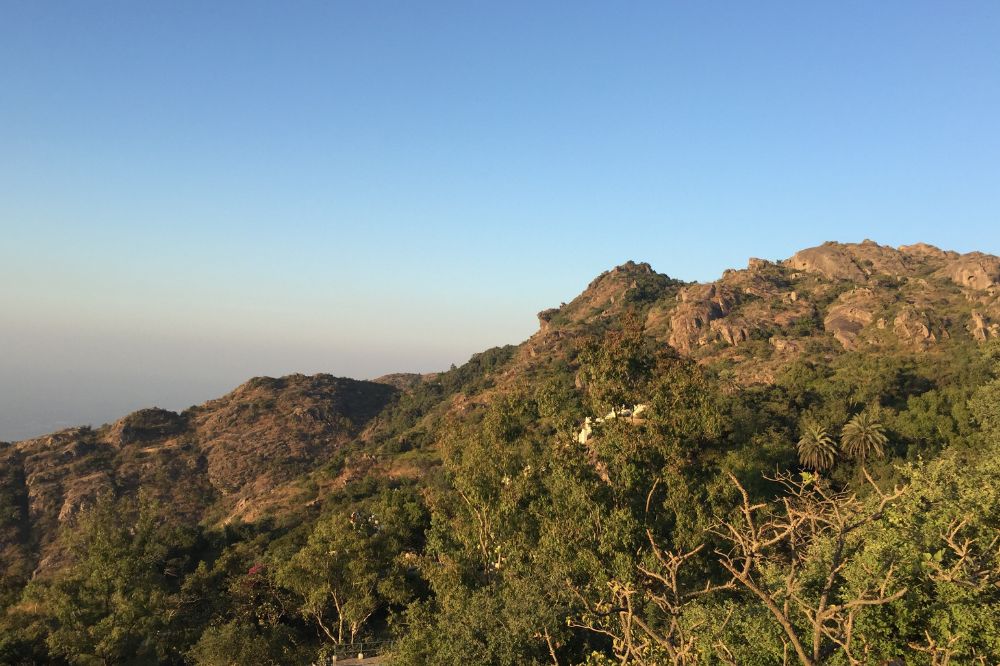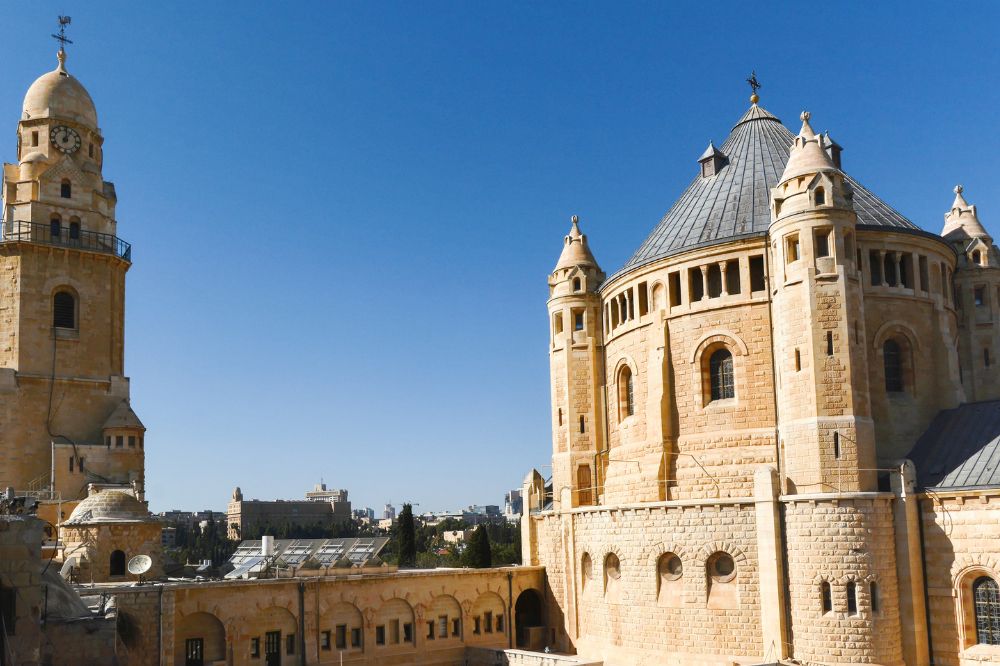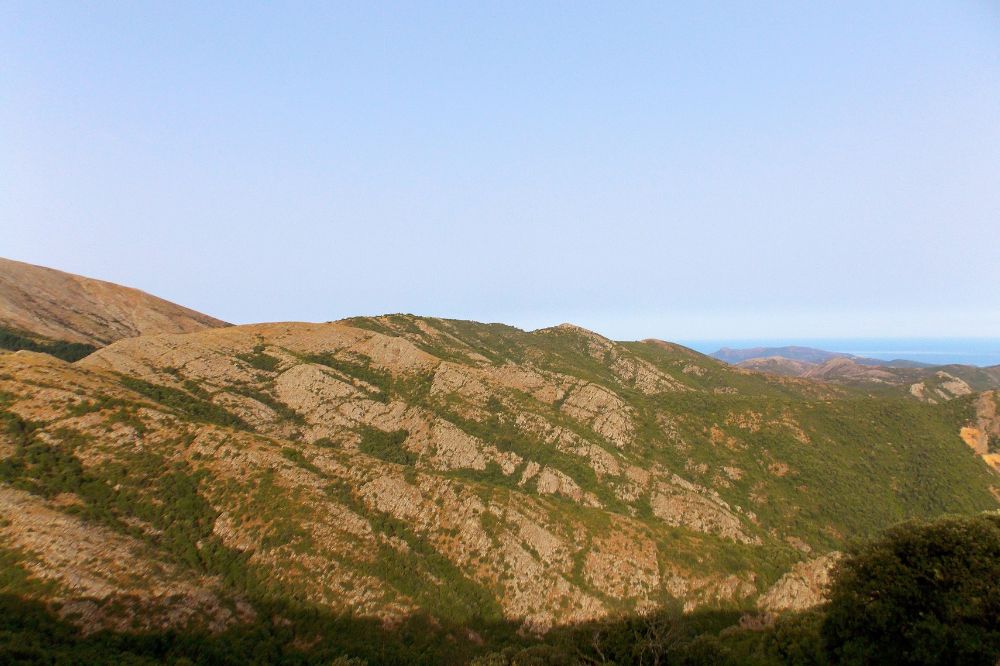
The Mountain of Zion, more than a simple geographical place, represents a spiritual journey that spans millennia and various religious traditions. In Judeo-Christian spirituality, it is fundamentally both historically and symbolically, being repeatedly mentioned in the sacred scriptures as a central place of worship and a symbol of the divine presence.
This article explores the profound relevance of Zion, not only as a physical destination in Jerusalem but also as a metaphorical space where the faithful find their way to a deeper understanding of their faith and their spiritual being.
Its importance transcends the coordinates of a map and is rooted in the beliefs and religious practices of millions of people throughout history. For Christians, it represents the place of the Last Supper of Jesus and his disciples. In the Jewish tradition, it is synonymous with the deepest longing of the Jewish people to return to their spiritual and political home.
In the following lines, you will discover the threads of this symbolic tapestry and its enduring impact on contemporary religious practice. You will understand why Zion remains a beacon of spirituality that guides the soul in its eternal quest for meaning and connection with the divine.

Zion, located in the heart of Jerusalem, has been an epicenter of spiritual and religious fervor throughout history. This place, emblematic in the Jewish, Christian, and Islamic traditions, has attracted pilgrimages since time immemorial. Today it remains a symbol of devotion and encounter with the sacred.
From the Tomb of Jesus to the ancient temples, this place presents itself as a crossroads where history and faith intertwine. It offers pilgrims a unique space for reflection and spiritual connection.
The name “Zion” resonates deeply through the pages of history, being a term that has evolved in its meaning and symbolism. In the Bible, it is mentioned countless times. Initially, referring to the Jebusite fortress captured by King David, and later, as synonymous with Jerusalem and the divine presence.
This place, now considered part of the Holy Land, remains a testament to the beliefs and traditions that have shaped the faith of millions of devotees.
For Judaism, it is the “City of David”, a central place in Jewish history and spirituality. Here the First Temple was erected, a sacred place that concentrated Jewish faith and religious practice until its destruction.
Today, the Western Wall, a remnant of this temple, remains a site of prayer and lamentation. Here, Jews from all over the world come to connect with their history and renew their faith.
In Christianity, Zion occupies a special place in the hearts of the faithful. The Cenacle, the site of Jesus’ Last Supper with his disciples, is located here, offering a profoundly significant space for Christian reflection.
On the other hand, the Dormition of Mary, located on the Mount of Olives (near Zion), attracts numerous pilgrims who come to venerate the place where, according to tradition, Mary, the mother of Jesus, was taken to heaven.

In Islam, Zion also holds significant spiritual importance, being mentioned in the Quran in various contexts.
This place is seen as a meeting point of the divine, where the stories of prophets and religious figures intersect, thus enriching the spiritual heritage shared by multiple traditions. From this perspective, Zion continues to be a symbol of unity and the perpetual presence of the sacred in human history.
Pilgrimages to this holy place are more than simple journeys; they are spiritual odysseys that attract believers from around the world and three religions. They seek to deepen their faith and experience the sacredness of a place imbued with history and spirituality.
This pilgrimage through ancient traditions offers each visitor a unique opportunity for introspection and a personal encounter with the divine.
The decision to undertake a pilgrimage to Zion often arises from a deep spiritual desire for connection and discovery. Pilgrims prepare not only physically but also emotionally and spiritually, setting clear intentions for their journey.
Expectations are usually high, as many seek answers, inner peace, or a sense of community with other faithful who share their path.
The route to and within Zion may vary, but there are essential sites that most pilgrims strive to visit. The Cenacle, known as the place of the Last Supper, and the Abbey of the Dormition are must-see stops. These places are fundamental to understanding the religious narratives of this site and provide a space for reflection and prayer.

Prayer and daily rituals are common, and many immerse themselves in the importance of silence and meditation to connect more deeply with the sacred. This focus on personal contemplation is vital, allowing pilgrims to set aside the distractions of the outside world and focus on their spiritual growth.
As a spiritual and religious nucleus, Zion acts as a starting point for exploring other sacred sites deeply intertwined with the history and beliefs of monotheistic traditions. These places, each with its own spiritual resonance, enrich the pilgrims’ experience, offering a broader context and a deeper understanding of their faith.
The Western Wall, a remnant of the Second Temple in Jerusalem, is one of the most sacred sites in Judaism. Its history spans more than two thousand years, being a silent witness to uninterrupted pilgrimages and prayers.
For pilgrims in Zion, a visit to the Wall offers a tangible connection to ancient Jewish tradition and provides a unique space for personal prayer and reflection. Integrating this visit into the pilgrimage allows the faithful to embrace the continuity and depth of the sacred history surrounding Jerusalem.
The Mount of Olives, with its prominence in Christian texts, especially in the life and ministry of Jesus, is another site of great spiritual significance near Zion. Since biblical times, it has been the setting for key moments such as the Ascension of Jesus to heaven.
For pilgrims, activities such as following the route Jesus took during his last week, visiting historical churches, and participating in prayer vigils can deepen their spiritual experience and connect more deeply with Christian teachings.
The Holy Land, which encompasses more than Zion, includes numerous sites essential to fully understanding the roots and evolution of Judeo-Christian traditions. Places like Bethlehem, where Jesus was born, and Nazareth are essential for pilgrims who wish to explore the life of Jesus and biblical events.
Thus, extending the pilgrimage to include these places allows for a more holistic experience and a broader understanding of the historical and spiritual contexts that form the heart of these traditions.
The Tomb of Jesus, located in the Church of the Holy Sepulchre, is a site of profound reverence and piety. For many, visiting this place is the culmination of their pilgrimage, providing a moment of deep spiritual connection and reflection on the sacrifice and resurrection of Jesus.
The proximity of this tomb to Zion reinforces the interconnection of sacred sites within Jerusalem. It allows pilgrims to experience a spiritual continuity that unites the most significant events of the Christian faith in a single pilgrimage journey.

Zion has a spiritual significance that
extends across various religious traditions. This sacred place serves as a powerful symbol of the divine presence, resonating through theology, liturgy, and music in the lives of believers around the world.
In Christian theology, Zion is often contemplated as a symbol of God’s immutable presence among His people. This image of Zion as a place of divine refuge and sacred encounter comes from its biblical mentions as the city of the great king and as the place where God dwells and reigns.
This interpretation extends to encompass not only the physical aspect of Zion but also its spiritual significance as a place of hope, redemption, and heavenly encounter.
Zion has inspired countless liturgical and musical pieces throughout Christian history. Hymns and songs that evoke the beauty, holiness, and spiritual significance of the place are an integral part of liturgy in many denominations.
These musical compositions adorn religious services and facilitate a deeper connection of the faithful with the symbolism of this site as a place of divine presence. By singing about Zion, believers unite their voices in a tradition that celebrates and honors the centrality of this sacred place in their spiritual faith.
Planning a pilgrimage to Zion involves facing a series of logistical and practical challenges that can influence the travel experience. From proper preparation to safety considerations, it is important to address these aspects with care and knowledge to ensure that the pilgrimage is both safe and spiritually enriching.
Organizing a pilgrimage to such a significant site requires detailed planning that covers multiple logistical aspects. These include:
Moreover, it is vital to consider the best time of year to visit, taking into account both the climate and religious holidays, which can affect both accessibility and the overall experience at the site.
These tips are designed to help you manage the logistical challenges and safety concerns you might face, allowing you to fully concentrate on the spiritual and cultural experience of your journey.
Below are key recommendations you should consider to prepare adequately and enjoy a safe and enriching experience:
Following these tips can help ensure that your visit to Zion is as meaningful as it is stress-free, allowing you to focus on the spiritual depth and historical richness that this sacred destination has to offer.
Stay Connected with WayHoly
Discover your perfect pilgrimage and be the first to know about new journeys. By subscribing to our newsletter, you’ll receive the latest updates on pilgrimages, exclusive offers, and spiritual resources to enrich your faith journey.
Don’t miss the opportunity to deepen your connection with God and lead others on their path to spiritual renewal. Join us today and become an instrument of His Will through WayHoly!
“To upload your pilgrimage, please choose one of our plans and create an account, or log in if you’re already a member. Join us in guiding others on their spiritual journey.”